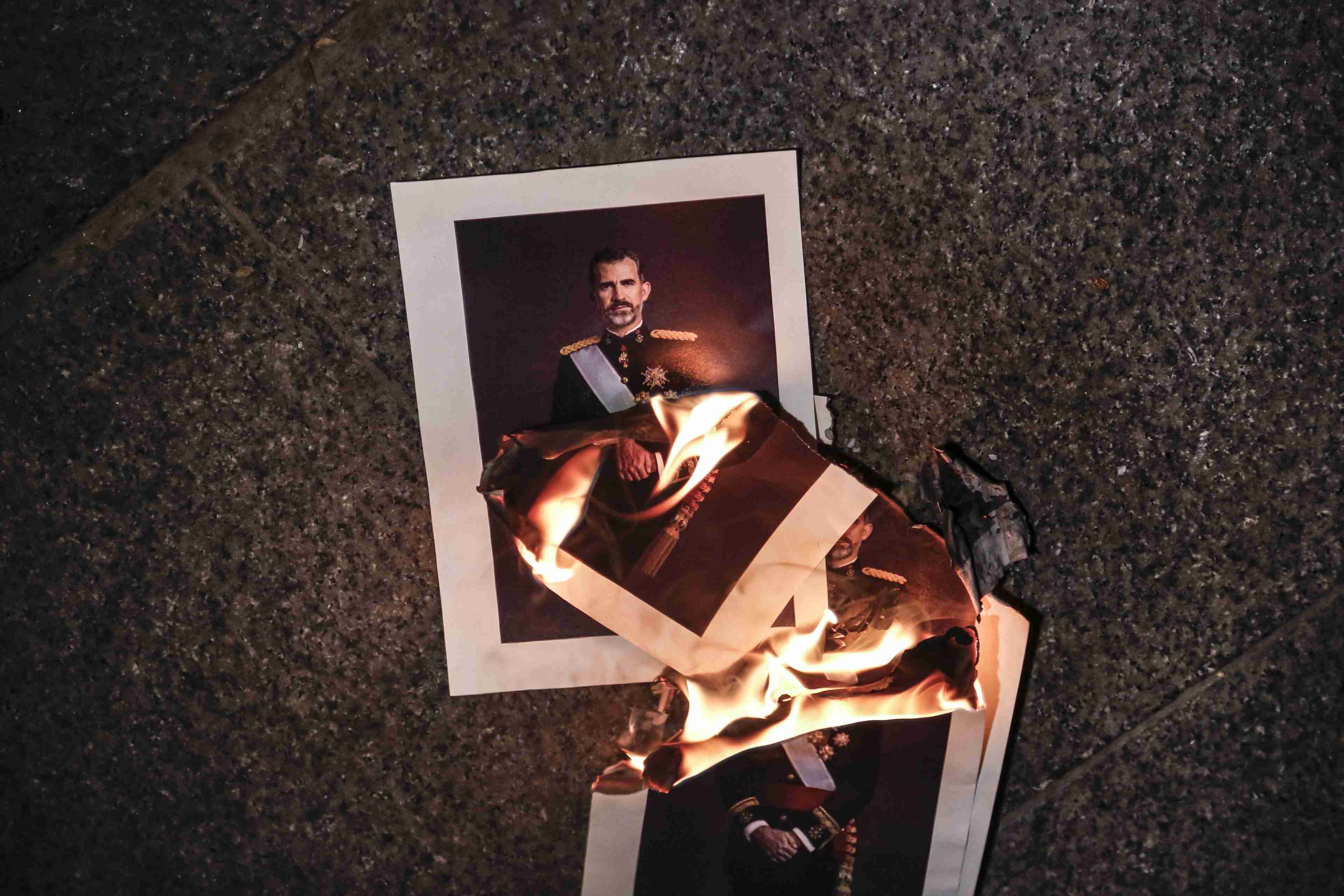New setback from Europe to the Spanish justice system. The European Court of Human Rights (ECHR) has today unanimously decided that freedom of expression does protect burning photographs of a monarch and, as such, the Spanish state has to return the 2,700 euro fine (£2,390, $3,350) and pay 9,000 euros in costs and expenses to Enric Stern and Jaume Roura. The two men were convicted of insult to the Crown in 2007, after burning a large, upside-down photo of the royal couple in Girona (Catalonia) during an official visit from then-king Juan Carlos I.
Strasbourg establishes that the case in question formed "part of a political, rather than personal, critique of the institution of monarchy in general", staged "to attract media attention" which "went no further than the use of a certain permissible degree of provocation in order to transmit a critical message in the framework of freedom of expression".
VÍDEO | El Tribunal Europeu de #DDHH condemna a l'estat espanyol a tornar la multa de 2700€ als encausats per la crema de fotos del rei a #Girona #2007 #NiReiNiPor #HemGuanyat pic.twitter.com/lZJfdcVgBQ
— CUP Països Catalans (@cupnacional) 13 de marzo de 2018
The press statement on the court's decision first summarises the facts of the case, noting that the pair were originally sentenced to 15 months in prison, later changed to a 2,700 euro fine, with prison time only to be served in the case of non-payment. They then appealed to the Constitutional Court, an appeal it rejected on the grounds that their actions "fell outside the scope of freedom of expression and freedom of opinion, given that the applicants had been guilty of incitement to hatred and violence against the King and the monarchy".
Rights violated by Spain
According to the court's verdict, Spain violated the right to freedom of expression and information as set out in Article 10 of the European Convention on Human Rights. Specifically, that "everyone has the right to (...) freedom to hold opinions and to receive and impart information and ideas without interference by public authority".
Whilst Spain's Constitutional Court saw the act as having "spilled over from the sphere of freedom of expression into that of hate speech and incitement to violence", the European judges believe they were clearly using the image of the monarchs as representative of the state as a whole and that it "should be interpreted as the symbolic expression of dissatisfaction and protest".
The court says that although Spain was pursuing a "legitimate aim", namely protecting the king's reputation and rights, the criminal penalty "amounted to an interference with freedom of expression" which was not proportionate to this aim, "nor necessary in a democratic society".
It remains to be seen whether the ECHR will also consider the sentence against the rapper Valtonyc, sentenced to three and a half years in prison for glorifying terrorism, slander and serious harm to the Crown for his lyrics, or the case of Pablo Hasél, also a rapper, sentenced to two years and a day in prison for glorifying terrorism, among other recent cases related to freedom of expression.
Article 20 of the Spanish Constitution recognises the right "to freely express and disseminate thoughts, ideas and opinions trough [sic] words, in writing or by any other means of communication".

